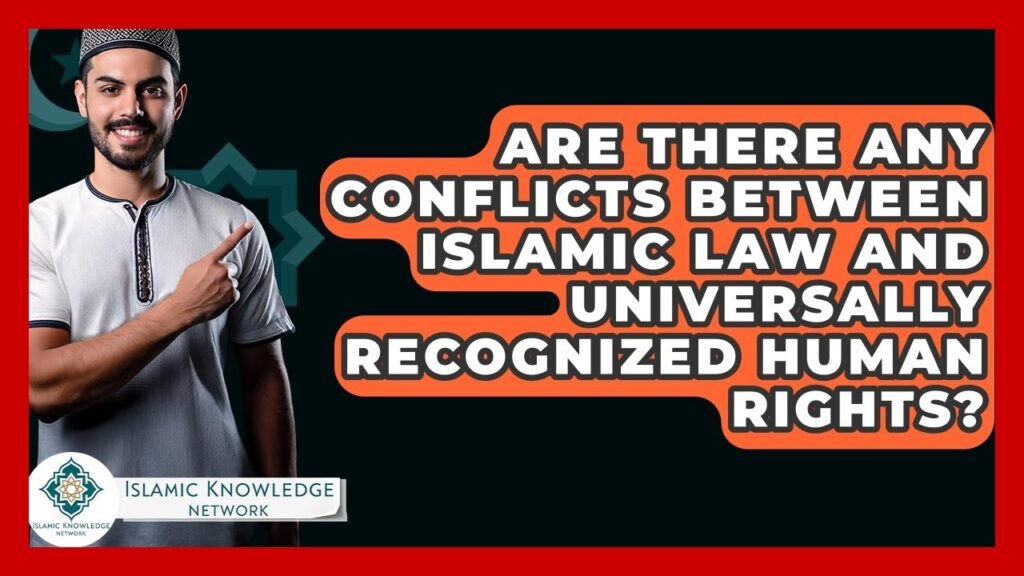You are here to read: Are Conflicts Possible Between Islamic Law and Human Rights? – A Thoughtfully Written Guide Offering Spiritual Wisdom and Travel Advice for Every Pilgrim who is going on holy journey of Hajj or Umrah.
Are There Any Conflicts Between Islamic Law and Universally Recognized Human Rights?
The intersection between Islamic law, or Sharia, and universally recognized human rights is a subject of profound significance and nuance. As societies increasingly globalize, questions arise about the compatibility of traditional religious laws with modern human rights frameworks. While Islamic law provides a comprehensive set of guidelines for ethical behavior and community welfare, some interpretations can appear to clash with internationally accepted human rights principles. This complex dynamic invites inquiry into how differing cultural contexts shape the understanding and application of these laws.
At Airlink Hajj and Umrah, we strive to delve into important discussions such as this, providing our readers with insights into various aspects of Islamic jurisprudence as they relate to contemporary issues. Our blog is dedicated to offering up-to-date information on Hajj and Umrah, ensuring that pilgrims can navigate their spiritual journeys with both awareness of their rights and respect for their traditions. By fostering informed dialogue, we aim to enhance understanding and respect between diverse perspectives—an essential foundation for peaceful coexistence in our interconnected world.
Are Conflicts Possible Between Islamic Law and Human Rights?
The relationship between Islamic law, or Sharia, and human rights is a complex and nuanced topic. While Islamic law promotes justice, equality, and compassion, there are instances where certain interpretations may conflict with widely accepted human rights standards. For example, issues surrounding freedom of expression, gender equality, and the rights of religious minorities can lead to debates on how best to harmonize these two frameworks.
Many Muslim-majority countries interpret Sharia in ways that align more closely with their cultural contexts, potentially causing differences in the application of human rights. Conversely, advocates for universal human rights argue that all individuals should have rights that transcend cultural and religious boundaries, urging for a reinterpretation of Islamic texts to align with global standards.
However, it’s essential to recognize that not all interpretations of Islamic law conflict with human rights. Many scholars and activists strive to find common ground, advocating a modern understanding of Sharia that supports human dignity and rights. Promoting dialogue is crucial in addressing these conflicts, allowing for a more inclusive approach.
For those interested in navigating these discussions, our blog at Airlink Hajj and Umrah provides updates on Hajj and Umrah, reflecting on the importance of spiritual journeys in fostering understanding and respect among different cultures and beliefs.
You're at the middle of this awesome post at AirlinkHajjandUmrah.com through: Are Conflicts Possible Between Islamic Law and Human Rights?. Keep reading, it gets better!
FAQ on Are Conflicts Possible Between Islamic Law and Human Rights?
-
What are the main sources of Islamic law?
Islamic law, or Sharia, is primarily derived from the Quran, the Hadith (sayings and actions of the Prophet Muhammad), and the interpretations of scholars through Ijtihad (independent reasoning) and consensus (Ijma).
-
What are the primary human rights frameworks relevant to this discussion?
The Universal Declaration of Human Rights (UDHR) and various international human rights treaties, such as the International Covenant on Civil and Political Rights (ICCPR) and the International Covenant on Economic, Social, and Cultural Rights (ICESCR), establish globally recognized human rights. -
Can Islamic law and human rights coexist?
Many scholars argue that Islamic law and human rights can coexist; however, interpretations of specific laws may lead to conflicts, particularly concerning gender equality, freedom of expression, and minority rights. -
What are some examples of potential conflicts?
Potential conflicts may arise in areas such as women’s rights in inheritance and marriage, the rights of LGBTQ+ individuals, and freedom of expression, which can differ significantly between some interpretations of Islamic law and international human rights standards. - How are these conflicts typically addressed?
Resolutions often involve legal and cultural dialogue, interpretation of religious texts, and efforts by activists and scholars to reconcile traditional teachings with contemporary human rights principles, promoting a more inclusive understanding of both.
That wraps up Are Conflicts Possible Between Islamic Law and Human Rights?. Thanks for sticking with us till here! Share this: Are Conflicts Possible Between Islamic Law and Human Rights? with your friends.
Check our homepage at Air Link Hajj & Umrah for more awesome updates.
Some interesting posts are: 1: Umrah Mubarak, 2: When is Umrah closed 2026?, 3: When does Umrah start after Hajj 2026?
Mushu, an experienced Saudi Arabia traveler and writer, shares insightful tips and spiritual reflections to enhance Hajj and Umrah journeys for fellow pilgrims. He has been to Makkah and Madina from 2016 to 2023 many times and his posts will reflect this.







